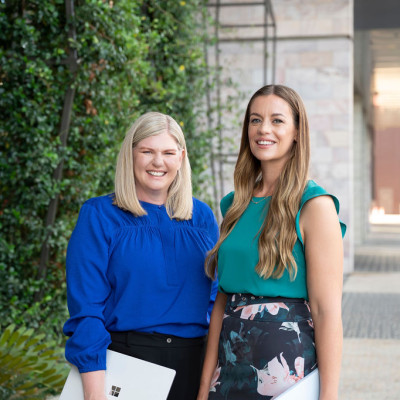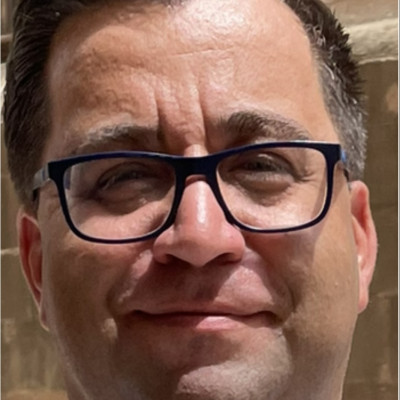Sessions / Content-Based Instruction / EMI / CLIL
Teaching Notetaking for Academic Lectures: An Action Research Study #3599
Comprehending and taking notes during academic lectures can be the difference between success and failure at university. Given that taking notes is a complex process in which learners must listen, filter, and record vitally important pieces of information under real-time constraints, it is clear that for language learners studying in their L2, this represents a great challenge. This presentation reports on multiple iterations of an action research study in the Japanese EFL context that looks to replicate the studies of Siegel (2018). Attendees at this session will get an overview of the whole study, and an introduction to the methods used to teach notetaking to learners preparing for entry into EMI/CLIL courses (marking, chunking, verbatim notes, simplifying, free-writing/discussion). The presentation will also introduce the most recent results from the study that suggest that the addition of free-writing and discussion can lead to statistically significant increases in comprehension of lectures as well as improvements in notetaking ability.
Supporting CLIL Approaches with Simple English Wikipedia #3733
Wikipedias are online spaces for collaboration and the development and sharing of knowledge. The main English language Wikipedia presents several difficulties for language learners and instructors. Excessive jargon, specialisation, and uncontrolled language and style make many articles inaccessible for readers. Gatekeeping and a sometimes hostile culture can make contributing difficult to impossible. Simple English Wikipedia (SEWP) greatly reduces these barriers and aims to serve younger readers and English language learners by using controlled vocabulary and grammar. The wiki also provides spaces and tools for schools. This poster will dispel some of the criticisms of SEWP and demonstrate the affordances of this platform for student-student, student-instructor, and student-public cooperation in developing and using content-based or CLIL appropriate materials for the classroom and for independent learning.
How can we learn what academics think about their peers’ opinions? #3660
Considering the dearth of interaction possible in the last three years, it is impossible to ignore the paucity of quality connections between academics. Our podcast project attempted to fill this gap in two ways: a) by using our academically-oriented podcast series to contact and interview leading academics in their disciple; b) by directly addressing the contents of previous interviews to ask for the experts’ reactions. We uncovered a ‘narrative’ in our work, encouraging other experts to join our discourse. We will present this narrative from experts in the field of English as a Medium of Instruction (EMI) and how the differences in opinion led to fruitful and engaging discussions that would have been impossible without our efforts during the time of COVID lockdowns. We will demonstrate the opportunities for qualitative analysis of long-form academic interviews to bring state-of-the-art academic conversations to a broad audience.
A teaching framework for supporting cognitive academic language proficiency in EMI classrooms. #3511
There is an established need for EMI teachers to access professional development that focuses not only on increasing language proficiency, but also on EMI specific student-centred methodology which develops discipline-specific literacy (British Council 2021; Nieto Moreno de Diezmas and Fernandez Barrera, 2021; Lasagabaster, 2022). This practical workshop is aimed at EMI teachers and those who support their teaching and professional development. It presents a principles-based framework to planning and delivery, enabling teachers to: · Pinpoint opportunities for student-centred tasks; · Select classroom language to set up tasks and give feedback; · Identify discipline-specific cognitive academic language proficiencies (CALP) required to complete tasks; · Source appropriate language support resources to scaffold learning. Workshop participants will be guided through the framework to plan a section of their lesson as practice in using the framework for future lessons. The template can be used to collaborate with English language professionals within their institutions.
Kakao Open Chat to Support English-Medium Instruction Classes: A Useful Tool #3615
Kakao Open Chat (OC) is a feature of Kakao Talk. OC is a free, anonymous open board that can be password-protected. One presenter employed English-medium instruction (EMI) with international law classes in the spring and fall of 2022. The spring semester was online-only (asynchronous video lectures), and the fall semester was face-to-face. The classes were large (n = 30-60 per class). In such conditions, students often hesitate to interact. We asked, “Will students use OC to ask for the information they need?” and “Will OC proceed in a safe and positive way?” Surveys were conducted after each semester to assess perceptions of OC, OC chats were downloaded and thematically analyzed, and volunteers were interviewed. Results show that using Kakao OC helps students learn course content and overcome the English barrier, and it contributes positively to learning in both asynchronous and face-to-face conditions. We offer suggestions for its use.
Lights, Camera, Interaction: Developing the Four Skills Through Collaborative Filmmaking Projects #3481
In recent years, the number of CLIL (Content and Language Integrated Learning) classes has increased dramatically in universities across Asia. While the approach is intended to increase student independence, my observations suggested that classes are often lecture-based and teacher-centred. Learner interviews revealed further problems: some students’ independent research was performed in their L1, and some struggled with understanding and discussing new concepts in English. This led to the development of a CLIL-based class for university students in Japan, in which groups of learners collaborated on creating short movies. This presentation will outline some elements of the course, from learning basic screenwriting, to rehearsal of actors, and finally to making a five-minute narrative film. Questionnaire responses show that the students’ motivation increased throughout the course, and that their confidence in using the Four Skills improved. These findings have implications for wider use of collaborative activities to improve L2 motivation and competence.
BrainPOP Jr. 101: Aiding Students with Collaboration and Digital Literacy #3643
English education in EFL has always straddled the line between competitive core curriculum and edutainment. The pandemic came to spotlight an inevitable shift regarding the necessary collaboration between shared technology in the classroom and at home. ELL instructors have had to remain one step ahead of the digital curve to ensure that classroom and parent expectations are met. Instructors are left with the dubious task of fostering engagement with their students, in and often outside the classroom, but where to start? This workshop reviews in-class research and instructors will be presented with a specific forum that provides media and modules to construct lessons and curriculums that help students from all levels better understand core concepts in language arts. Participants will discuss and formulate engaging ways to foster the usage of keywords and incidental language through channels of humor, review, and gamification, which supports collaboration and engagement with all students.
Preparing primary school teachers for CLIL: an action research project. #3559
Since the Taiwan government launched the Bilingual National 2030 policy in 2018, primary schools have been encouraged to teach non-English subjects using content and language integrated instruction (CLIL), where the language is English. For example, schools need to compete for extra funding by transforming traditionally Chinese-taught courses into CLIL courses. However, very few primary school teachers are confident and competent in adopting CLIL, and many express concerns about their insufficient English proficiency. To address teachers’ concerns, this study aims to provide primary school teachers with CLIL training and understand to what extent such training benefits teachers. Data are collected from recordings of the CLIL workshops and class observations. In this presentation, I will report some preliminary findings, some methodological challenges that arose from the collaboration between university researchers and primary school teachers, and how these challenges were resolved.
English Medium Instruction in Polish higher education: What do the lecturers say? #3577
Imparting content through the medium of a second/foreign language is a form of education that has grown exponentially in tertiary education all over the world. Clearly, educational institutions with EMI are more favoured by students, hence English competes with Polish as the medium of instruction. This paper reports on the results of a survey of 59 lecturers from a university located in the capital of Poland where English is used as a means of instruction in selected programmes. Data were collected on the basis of an online questionnaire and subsequent interviews with lecturers. Based on the findings, a tentative conclusion can be drawn that the EMI programme is far from a completely developed practice aimed at promoting the institutions’ strategic internationalisation.
Extra! Extra! Creating an English for Journalism Course Using the 4Cs Framework #3460
Journalism presents an ideal opportunity to engage with the CLIL 4Cs (content, cognition, culture, and communication). During the news writing process, students must think critically to develop story ideas on topics they believe will interest their readers. They then gather information on that topic through online research and one-on-one interviews with people in the community. Finally, they write, edit, and publish their stories following journalistic style. In this workshop, the presenter will briefly outline an English for Journalism course at a private university in Japan and explain how it attempts to incorporate the 4Cs into the class. Using this framework, student feedback on the course, and the presenter’s reflections on teaching the course, attendees will collaborate to create tasks, assignments, and other material that can be used in their own journalism lessons.
Integration of the 5E Model of Instruction in Bilingual Earth Science Class in a Senior High School in Taiwan #3630
This study aims to investigate how the content teachers apply 5E Model into bilingual classes and how students perceive this course design. Recently, the Taiwanese government launched the ‘Blueprint for Developing Taiwan into a Bilingual Nation by 2030’. In response to this policy, many teachers in Taiwan have implemented various bilingual teaching methods to help students comprehend and acquire both content and language knowledge. Some designed their courses using the 5E Model to give students clear guidelines. Little is known about the effect of the 5E Model in bilingual classes and if it works well in a Taiwanese context. This study aims to address this gap through questionnaires and interviews with both students and teachers in a bilingual earth science course in a senior high school in Taiwan. There are practical findings for bilingual teachers to develop comprehensive bilingual courses integrating the 5E Model.











